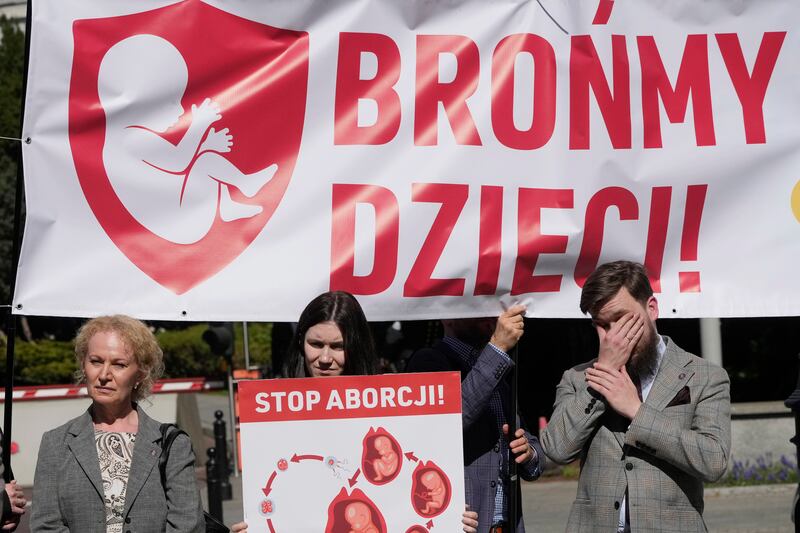Northern Ireland's abortion law should be changed to allow for terminations in cases of fatal foetal abnormality, it has been recommended.
The landmark report from a working group drawn from the departments of health and justice was commissioned in 2016 and found that health professionals considered the current situation to be "professionally untenable" and that the existing legal framework prevented them from fully meeting their duty of care to all women.
Their 58-page report recommends abortion law be changed "to provide for termination of pregnancy where the abnormality is of such a nature as to be likely to cause death either before birth, during birth or in the early period after birth".
The group of senior healthcare and legal figures also states that when a woman has been told her unborn child has a fatal abnormality "it is to be accepted that the continuance of such a pregnancy poses a substantial risk of serious adverse effect on a women's health and wellbeing".
They have also called for better support and care for women who receive the diagnosis.
Abortion is illegal in Northern Ireland unless a mother's life is at risk or there is a serious or permanent risk to her mental health.
Fatal foetal abnormality was defined as a diagnosis usually made around 20 weeks' gestation of an abnormality which will result in the unborn child's death in the womb, at birth or shortly after birth.
The report noted that modern diagnostic resources "allow for very accurate information to be provided to women regarding the condition of the fetus and its viability".
The working group met families who had experienced fatal foetal abnormalities plus medical professional bodies and found that health professionals considered the current situation to be "professionally untenable".
Evidence presented by health professionals included concerns over the risks associated with travelling to another jurisdiction for a termination, the inability to access on a private basis the specialist care needed for complex late term terminations and the difficulties in obtaining post mortems, genetic testing and repatriation of foetal remains, the report stated.
Publication of the document has been delayed due to the absence of an Executive and Assembly and the Department of Health said it moved to publish the report today on public interest grounds and in accordance with Freedom of Information responsibilities.
Key conclusions of the report include:
- some improvements can be made to the care and support of women with a fatal foetal abnormality diagnosis through the proposals to improve the standard of care under the existing legal framework
- a substantial body of evidence exists to underwrite the need for legislative change in relation to termination of pregnancy for fatal foetal abnormality
- health professionals identified a number of scenarios where they consider their duty of care to patients is being compromised
- there are woman who face risks to their physical and mental health including acute trauma and distress and possible financial hardship because they cannot access the health service they require in this jurisdiction.
Bernadette Smyth from pro-life group Precious Life said the report was a "renewed attack on our pro-life laws".
Read more: UN says Britain violates women's human rights by ciminalising abortion in north
Doctors 'afraid to sanction abortions' amid sharp rise in prosecutions








